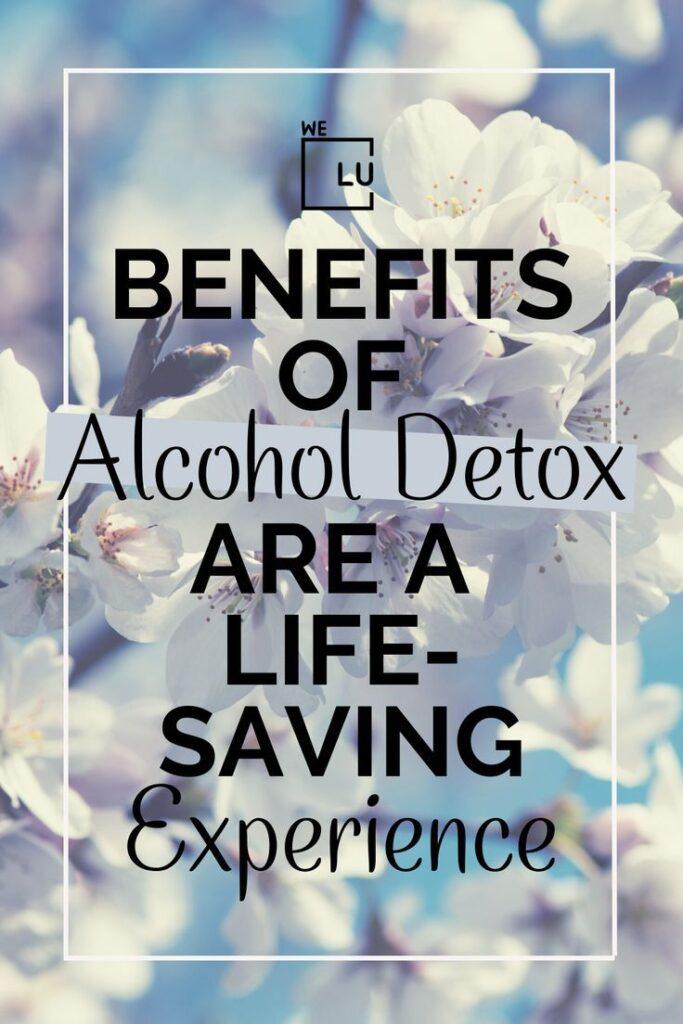What is Alcoholic Hepatitis?
About 20% to 40% of those who consume alcohol in heavy quantities and have fatty liver eventually develop liver inflammation. Alcoholic hepatitis is a severe syndrome of (ALD) alcoholic liver disease, defined by rapid onset of discomfort, yellow discoloration of the body tissue, and tender enlargement of the liver beyond its standard size.
Although the quantity of alcohol ingested is the most significant risk factor for developing chronic liver disease, the progression to alcohol-induced chronic liver disease is neither dose-dependent nor is the correlation between the amount of alcohol consumed and liver injury linear. Even shorter durations of alcohol abuse could lead to alcoholic hepatitis.
A typical alcohol hepatitis patient would be between 40-60 years of age with a history of more than 100 g/day of alcoholic drink for a decade, in whom you have ruled out other reasons for acute hepatitis. Risk facets that lead to alcohol hepatitis include a high body mass index (BMI), female sex, and having a genetic variant of (PNPLA3) patatin-like phospholipase domain-containing protein 3. Acute binge drinking is likely the trigger for alcoholic hepatitis in individuals with a history of chronic, heavy alcohol abuse.
How Long Does Alcoholic Hepatitis Take to Develop?
Alcoholic hepatitis is commonly seen in individuals with heavy and prolonged alcohol consumption. However, not everyone who drinks heavily will develop alcoholic hepatitis, as individual susceptibility can vary.
In some cases, alcoholic hepatitis can develop after years of heavy alcohol abuse; in others, it may occur relatively quickly. It is typical for individuals who have been consuming alcohol excessively for a prolonged period to experience liver inflammation and develop alcoholic hepatitis.
People at Risk of Alcohol Induced Hepatitis
While not everyone who drinks heavily will develop alcoholic hepatitis, certain factors can increase the risk. Some populations at higher risk of alcohol-induced hepatitis include the following:
- Heavy drinkers: Individuals who consume large amounts of alcohol regularly or binge drink are at a higher risk.
- Chronic alcoholics: Individuals with a long history of chronic alcohol abuse are more susceptible to developing alcoholic hepatitis.
- Excessive alcohol consumers with poor nutrition: Poor nutrition, particularly a deficiency of essential nutrients such as vitamins, can exacerbate the effects of alcohol on the liver, making individuals more vulnerable to alcoholic hepatitis.
- Coexisting liver diseases: People with underlying liver conditions, such as (NAFLD) non-alcoholic fatty liver disease, or viral hepatitis, are at an increased risk of developing hepatitis from alcohol. If you have hepatitis B avoid alcohol.
- Gender: Women are generally more susceptible to the harmful effects of alcohol on the liver compared to men due to physiological differences in how alcohol is processed in the body.
The risk of developing hepatitis from alcohol is not solely determined by alcohol consumption but is also influenced by individual factors such as genetic predisposition and overall health.
Alcoholic Hepatitis Symptoms
The symptoms of alcoholic hepatitis vary based on the amount of liver damage. If you have a mild alcoholic hepatitis case, you may not experience any hepatitis signs and symptoms. However, as more damage occurs, you may begin to experience the following:
- Weight loss.
- Nausea and vomiting.
- Pain or swelling in the abdomen.
- Changes in appetite.
- Dry mouth.
- Fever.
- Changes in your mental state, including confusion.
- Fatigue.
- Yellowing of the skin or eyes (jaundice).
- Easy bleeding or bruising.
The alcohol hepatitis symptoms are similar to those caused by other health conditions. You should speak with a healthcare treatment professional or your doctor for a proper hepatitis diagnosis and treatment if you develop these symptoms.

Skip To:
Learn More:
- AlcoholicAlcoholic Cirrhosis Symptoms, Causes, Stages & Treatment
- Risks Of Alcoholic Hepatitis vs Cirrhosis
- Alcoholic Wet Brain Symptoms, Wernicke-Korsakoff Syndrome/Wet Brain Syndrome Meaning, Stages, Effects & Treatment.
- Alcoholic Organic Brain Syndrome Symptoms & Treatment
- Symptoms & Signs Of A High Functioning Alcoholic
- How to Help a High Functioning Alcoholic?
- How to Help an Alcoholic? Alcoholic Recovery Tips & Support
- Alcohol-Induced Dementia Symptoms & Treatment
- Alcohol Detox Timeline & How To Safely Manage Alcohol Withdrawal Symptoms Treatment
- What is Alcohol-Induced Psychosis? Symptoms & Treatment
Alcoholic Hepatitis Fact Sheet
Understanding Alcoholic Liver Disease
Alcoholic liver disease (ALD) is a range of liver conditions caused by excessive and prolonged alcohol consumption. It encompasses a spectrum of disorders, including fatty liver, hepatitis from alcohol, and cirrhosis.
The liver metabolizes alcohol, but excessive alcohol intake can overwhelm its capacity, leading to liver damage. Initially, the liver may develop fatty deposits, known as fatty liver.
Continued alcohol abuse causes inflammation, and liver cell damage can occur, resulting in alcoholic hepatitis. If alcohol consumption persists, the liver may progress to cirrhosis, which involves irreversible scarring and impaired liver function.
Alcoholic liver disease can have serious health consequences and requires immediate medical attention. The most effective approach to managing the condition is to stop drinking alcohol altogether, along with appropriate medical care, lifestyle changes, and, in some cases, medication.
Alcoholic Hepatitis vs Cirrhosis
What is the difference between alcoholic hepatitis versus cirrhosis? Alcoholic hepatitis and cirrhosis are two distinct but related conditions that can result from long-term and excessive alcohol consumption.
Alcoholic hepatitis can be reversible if the person stops drinking alcohol and receives appropriate treatment. On the other hand, cirrhosis is a late-stage condition characterized by extensive scarring and fibrosis in the liver. Cirrhosis is generally irreversible, meaning the scar tissue cannot be wholly reversed or healed.
Cirrhosis can lead to severe complications such as liver failure, portal hypertension, ascites (fluid accumulation in the abdomen), hepatic encephalopathy (brain dysfunction), and an increased risk of liver cancer.
Veterans Affairs PDF for Alcohol-Associated Liver Disease
Regardless of age, it is crucial to recognize the potential risks and complications associated with excessive alcohol drinking and to seek appropriate medical guidance and support for managing alcohol-related liver diseases. If you or someone you’re concerned with is struggling with alcohol-related issues, it is advisable to consult a medical or healthcare professional for personalized advice and assistance.
Download the below file for accessible guidance if you or someone you’re concerned with is at risk of developing hepatitis from alcohol.

Get Your Life Back
Find Hope & Recovery. Get Safe Comfortable Detox, Addiction Rehab & Dual Diagnosis High-Quality Care.
Hotline(844) 597-1011Alcoholic Hepatitis Statistics
Hepatitis from alcohol carries a significant risk of complications, including portal hypertension, liver failure, and an increased likelihood of developing cirrhosis and liver cancer. Severe cases of the disease can affect alcoholic hepatitis life expectancy and have a high mortality rate.
50%
The mortality rate in severe cases of alcoholic liver diseases, including alcoholic hepatitis, is about 50%.
Source: NIH
35%
Up to 35% of heavy drinkers develop hepatitis from alcohol, which can be mild or severe. Symptoms may include nausea, fever, vomiting, jaundice, abdominal pain, and tenderness.
Source: American Liver Foundation
40%
If heavy alcohol drinking continues, about 40% of cases of alcoholic hepatitis will develop into cirrhosis.
Source: NIH
Alcoholic Hepatitis Diagnosis
Diagnosing hepatitis from alcohol typically involves medical history assessment, physical examination, laboratory tests, imaging studies, and sometimes a liver biopsy.
If you experience symptoms, your doctor will ask about your alcohol intake and medical history. Your doctor will also perform a physical check to assess whether you have an enlarged liver or spleen. They could opt to conduct tests to confirm your diagnosis. These tests could include the following:
- Blood Clotting Tests.
- Abdominal CT Scan.
- Ultrasound of the liver.
- Complete Blood Count (CBC).
- Liver Function Test.
Your doctor may require a liver biopsy to confirm an alcohol-related hepatitis diagnosis. A liver biopsy is an invasive operation that has specific hazards. Your doctor must take a tissue sample from your liver. A liver biopsy will also reveal the degree and type of liver disease.

Is Alcoholic Hepatitis Reversible?
In cases of mild hepatitis from alcohol, with minimal liver damage and inflammation, the condition may be reversible with complete abstinence from alcohol. By stopping alcohol consumption, adopting a healthy lifestyle, and receiving appropriate medical care, the liver can heal, and liver function can improve over time.
However, in cases of severe alcoholic hepatitis, where there is significant liver inflammation, cell death, and potential complications, the condition may not be fully reversible. However, even in severe cases, quitting alcohol is crucial to prevent further liver damage and improve overall health. With abstinence and proper medical management, some degree of improvement in liver function and symptom resolution can occur.
Furthermore, alcoholic hepatitis can progress to cirrhosis, a condition characterized by irreversible scarring and loss of liver function. Once cirrhosis develops, the liver damage is generally not reversible. However, quitting alcohol can slow down the progression of cirrhosis and improve overall outcomes.
The key to managing alcoholic hepatitis is to stop drinking alcohol entirely and seek medical care. Abstinence from alcohol, appropriate medical treatment, healthy lifestyle changes, and nutritional support can improve liver function, reduce inflammation, and potentially reverse some of the damage caused by alcoholic hepatitis.
Get Help. Get Better. Get Your Life Back.
Searching for Accredited Drug and Alcohol Rehab Centers Near You?
Even if you have failed previously and relapsed, or are in the middle of a difficult crisis, we stand ready to support you. Our trusted behavioral health specialists will not give up on you. When you feel ready or just want someone to speak to about therapy alternatives to change your life call us. Even if we cannot assist you, we will lead you to wherever you can get support. There is no obligation. Call our hotline today.
(844) 597-1011How Long Does Alcoholic Hepatitis Last?
Acute alcoholic hepatitis refers to the initial stage of inflammation in the liver caused by excessive alcohol consumption. With appropriate medical intervention and complete abstinence from alcohol, the symptoms and inflammation associated with acute hepatitis can improve within weeks to months. In some circumstances, it may take longer for liver function to fully recover.
Chronic alcoholic hepatitis refers to ongoing inflammation in the liver due to prolonged alcohol abuse. In cases of chronic hepatitis from alcohol, the condition can be longer, and without intervention, it can progress to more severe liver damage or cirrhosis. The inflammation and symptoms may persist if alcohol consumption continues.
Seeking appropriate medical care, including guidance from healthcare professionals, quitting alcohol altogether, and adopting a healthy lifestyle can positively impact the duration and outcome of alcoholic hepatitis. By addressing the underlying cause of liver inflammation and promoting liver health, the time of hepatitis from alcohol can be shortened, and the chances of recovery can be improved.

Alcoholic Hepatitis Prevention
The most effective way to prevent alcoholic hepatitis is to limit alcohol consumption or quit drinking altogether. If you choose to drink, it is essential to do so in moderation, following the guidelines for safe alcohol consumption. However, if you have an excessive alcohol consumption history or struggle with alcohol abuse, seeking support is crucial. This may involve contacting healthcare professionals or support groups or seeking counseling or therapy to address underlying issues and develop healthier coping mechanisms.
Regular medical check-ups and screenings can help monitor liver health and detect any potential liver damage or early signs of liver disease. If you have an alcohol use disorder history, discussing your concerns with a healthcare professional who can provide appropriate guidance and monitoring is vital.
First-class Facilities & Amenities
World-class High-Quality Addiction & Mental Health Rehabilitation Treatment
Rehab Centers TourRenowned Addiction Centers. Serene Private Facilities. Inpatient rehab programs vary.
Addiction Helpline(844) 597-1011Proven recovery success experience, backed by a Team w/ History of:
15+
Years of Unified Experience
100s
5-Star Reviews Across Our Centers
10K
Recovery Success Stories Across Our Network
- Low Patient to Therapist Ratio
- Onsite Medical Detox Center
- Comprehensive Dual-Diagnosis Treatment
- Complimentary Family & Alumni Programs
- Coaching, Recovery & Personal Development Events
Alcoholic Hepatitis Treatments
The treatment for alcoholic hepatitis aims to manage symptoms, improve liver function, and prevent disease progression. The first and most critical step in treating alcoholic hepatitis is abstinence from alcohol. Stopping alcohol consumption is essential to prevent further liver damage and allow the liver to heal. Other treatment programs may include the following:
- Acute Alcoholic Hepatitis Medication: Several medications may be prescribed to manage alcoholic hepatitis. Corticosteroids, such as prednisone or prednisolone, may sometimes reduce liver inflammation. However, their use is determined on a case-by-case basis, considering the individual’s overall health and the severity of the condition. Other medications, such as pentoxifylline, may be regarded as helping reduce inflammation and improve liver function.
- Nutritional Support: Adequate nutrition is vital for individuals with alcoholic hepatitis. A healthy and balanced meal, rich in essential nutrients, is recommended. In severe cases of insufficient oral intake, nutritional support may be necessary through intravenous (IV) fluids or tube feeding.
- Management of Complications: Alcoholic hepatitis can lead to various complications, such as fluid retention (ascites), hepatic encephalopathy (brain dysfunction), and gastrointestinal bleeding. These complications require specific treatments, such as diuretics for fluid retention, lactulose for hepatic encephalopathy, and interventions to manage bleeding.
- Liver Transplant: In severe cases of alcoholic hepatitis or when other treatments are ineffective, a liver transplant may be considered. However, transplantation is typically reserved for individuals with severe liver dysfunction or advanced cirrhosis who meet specific criteria.
Managing alcoholic hepatitis requires an individualized approach based on the severity and the patient’s needs. It is crucial to seek medical support from healthcare professionals experienced in liver diseases to determine the most appropriate treatment plan and receive ongoing monitoring and support.
If you or someone you’re concerned with needs help quitting alcohol, the We Level Up alcohol addiction treatment center is ready to help. Contact us today for treatment resources and options.
World-class, Accredited, 5-Star Reviewed, Effective Addiction & Mental Health Programs. Complete Behavioral Health Inpatient Rehab, Detox plus Co-occuring Disorders Therapy.
CALL(844) 597-1011End the Addiction Pain. End the Emotional Rollercoaster. Get Your Life Back. Start Drug, Alcohol & Dual Diagnosis Mental Health Treatment Now. Get Free, No-obligation Guidance by Substance Abuse Specialists Who Understand Addiction & Mental Health Recovery & Know How to Help.
Top 3 Hepatitis Alcohol Treatment FAQs
-
Is alcoholic hepatitis contagious?
No, hepatitis from alcohol is not contagious. Hepatitis from alcohol is a condition that occurs due to excessive and prolonged alcohol consumption, leading to inflammation and damage to the liver. A virulent virus, bacteria, or other infectious agent does not cause it. Alcoholic hepatitis is a consequence of alcohol abuse and is not contagious through direct contact or respiratory droplets. However, excessive alcohol consumption can negatively affect individuals and contribute to various health issues, including liver damage.
-
Does alcoholic hepatitis go away?
The outlook for hepatitis from alcohol depends on varied factors, including the severity of the condition, the duration and amount of alcohol consumption, and individual characteristics, such as overall health. In some cases, with prompt intervention and abstinence from alcohol, alcoholic hepatitis can be reversible, and the liver can heal. Lifestyle changes, such as adopting a balanced diet, regular exercise, and avoiding substances that may further damage the liver, are essential for recovery and preventing future liver damage. Medications may sometimes be prescribed to manage symptoms and support liver function.
-
How long does alcohol hepatitis last?
Acute alcoholic hepatitis, which refers to the inflammation of the liver due to alcohol consumption, can last for weeks to several months. In some cases, with prompt intervention and abstinence from alcohol, the liver can heal, and the symptoms of alcoholic hepatitis can resolve. However, continued alcohol consumption can worsen the condition and lead to chronic alcoholic liver damage, such as cirrhosis. If hepatitis from alcohol progresses to chronic liver disease, the duration becomes indefinite, as chronic liver diseases are ongoing and can require long-term management and monitoring.
Alcoholism Treatment. Alcohol Use Disorder. Is Alcohol Addictive? Why Is Alcohol Addictive
Get FREE addiction treatment insurance check – https://welevelup.com/rehab-insurance/
If you or a loved one is struggling with alcohol addiction or other substance use disorder(s), call for a FREE consultation 24/7 at (561) 678-0917
Alcoholism Treatment Video Transcript
Welcome to the We Level Up treatment center video series. In today’s video, we will discuss Alcoholism Treatment. Alcohol Use Disorder. Is Alcohol Addictive? Why Is Alcohol Addictive Plus Effective Alcohol Addiction Treatment Options?
There are several names for alcoholism, such as alcohol addiction and alcohol dependency. It is now officially known as an alcohol use disorder. It happens when you drink so much alcohol that your body finally develops an addiction. When this occurs, alcohol takes on a major role in your life. Each technique used in alcoholism therapy for alcohol use disorder is intended to help you completely stop binge drinking.
Alcoholism is characterized as an alcohol use disorder. It is a pattern of binge drinking referred to as alcoholism. The likelihood of controlling your drinking, being concerned with alcohol, and continuing to consume alcohol even when it creates problems increases if you have excessive drinking issues. When you abruptly cut back or quit drinking, you may experience alcohol withdrawal symptoms or need to drink more to achieve the same impact.
Any alcohol usage that threatens your health or safety or results in other alcohol-related issues is considered unhealthy. A pattern of drinking where a man downs five or more drinks in two hours or where a woman downs at least four drinks in two hours is known as binge drinking. Significant threats to one’s health and safety result from binge drinking.
While some individuals may consume alcohol to the point where it becomes problematic, they are not physically dependent. Alcohol abuse used to be the term for this.
Experience Transformative Recovery at We Level Up Treatment Centers.
See our authentic success stories. Get inspired. Get the help you deserve.
Start a New Life
Begin with a free call to an addiction & behavioral health treatment advisor. Learn more about our dual-diagnosis programs. The We Level Up Treatment Center Network delivers recovery programs that vary by each treatment facility. Call to learn more.
- Personalized Care
- Caring Accountable Staff
- World-class Amenities
- Licensed & Accredited
- Renowned w/ 100s 5-Star Reviews
We’ll Call You
Search We Level Up Alcoholic Hepatitis Detox, Mental Health Topics & Resources
Sources
[1] Shah NJ, Royer A, John S. Alcoholic Hepatitis. [Updated 2023 Jan 2]. In: StatPearls [Internet]. Treasure Island (FL): StatPearls Publishing; 2023 Jan-. Available from: https://www.ncbi.nlm.nih.gov/books/NBK470217/
[2] Patel R, Mueller M. Alcoholic Liver Disease. [Updated 2022 Oct 24]. In: StatPearls [Internet]. Treasure Island (FL): StatPearls Publishing; 2023 Jan-. Available from: https://www.ncbi.nlm.nih.gov/books/NBK546632/
[3] Osna NA, Donohue TM Jr, Kharbanda KK. Alcoholic Liver Disease: Pathogenesis and Current Management. Alcohol Res. 2017;38(2):147-161. PMID: 28988570; PMCID: PMC5513682.
[4] Alcoholic liver disease: MedlinePlus Medical Encyclopedia Available from: https://medlineplus.gov/ency/article/000281.htm
[5] Alcohol-induced Death Rates in the United States, 2019–2020 – Centers for Disease Control and Prevention (CDC)
[6] FastStats – Chronic Liver Disease or Cirrhosis – Centers for Disease Control and Prevention (CDC)
[7] Alcohol-Associated Liver Disease Overview – Veterans Affairs Available from: https://www.hepatitis.va.gov/alcohol/index.asp
[8] Alcohol and the Liver – Office of Justice Programs
[9] Alcohol and You: An Interactive Body – College Drinking Prevention
[10] Focus On: Alcohol and the Liver – NIAAA Publications




